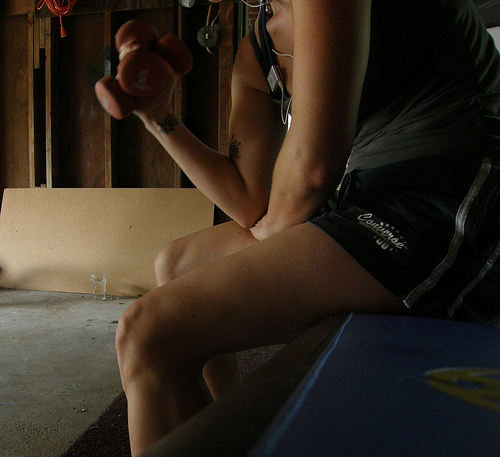Want to feel more content? Just practise these 8 simple steps every day!
We tend to think big things – like a great job, more money or a new partner – will make us happier. But often, it’s the small, everyday things that help us to feel more positive, says Rachel Kelly, author of Walking on Sunshine (Short Books, £9.99), a book she wrote to share the strategies that help keep her upbeat after overcoming depression. Here are some of her top daily tips for staying cheerful…
1. Turn negatives into positives
‘Positivity affects everything from how quickly we recover from an operation to how long we live: the positive among us live roughly a decade longer,’ says Kelly. ‘It’s worth paying attention to good news.’ The more positive you are, she says, the more you attract positive people and events. If you find it difficult to feel optimistic about things, start by becoming aware of your negative thoughts and challenging them. According to Kelly, the first step is to notice your negative thoughts. ‘Next, realise these thoughts aren’t facts. It’s worth questioning them – many turn out to be false assumptions.’ Find the negative thought still won’t go away? Breathe in, accepting the thought as you do so. When you breathe out, try to find a more positive way of viewing it. For example, if you’re convinced your job interview will go badly, tell yourself you’re just experiencing natural nerves which will help keep you sharp and focused on the day.
2. Look for the good things
‘The “Three Good Things” exercise is a handy tool,’ says Kelly. ‘As you wind down for the night, think of three positive things that happened that day. The more detailed and specific you can be, the better. Reflect on each one and how it made you feel.’
3. Keep perspective
Even if everyone around you is getting worked up about something, stay calm. ‘It’s important to stay steady and not join in with a general sense of alarm,’ says Kelly. Next time something goes wrong at work or another household appliance breaks, avoid catastrophising. Don’t fall into the trap of thinking, ‘Something else has gone wrong’, and seeing it as part of a pattern. Instead, recognise it for what it is – a minor problem, in the grand scheme of things.
4. Brighten up your home
‘We spend on average eight hours a day at home, yet psychologists have found many of us don’t find our house or flat restful,’ says Kelly. She suggests using plants or flowers to bring a calming sense of outdoors to your home. ‘Another strategy could be to fill your home with colourful pictures,’ she says. ‘And I find that photos of family and friends help rescue me from obsessing about my own concerns and evoke treasured memories.’
5. Find exercise you enjoy
‘I feel much more alive when I live in my body as well as my mind,’ says Kelly. Instead of focusing on what to do to lose weight or get fit, take the ‘should’ out of exercise by finding something exhilarating you really look forward to. That could be dancing, cycling, wild swimming or fell running – whatever you enjoy.
6. Mend something
‘I’m often at my most serene when mending,’ says Kelly. It’s satisfying putting something back together and making it useful again, whether that’s by sewing a button back on a blouse or gluing a smashed mug.
7. Embrace every morning
Okay, you may not be a morning person. And if you have a difficult day ahead, it can be hard to feel upbeat. But Kelly advises trying to get off to a good start, no matter what. Take some slow breaths to wake you up, and reflect on how you’re feeling. ‘Our waking thoughts allow us to take the temperature of our minds and observe what’s risen to the surface overnight,’ says Kelly. Do some yoga stretches to enliven your body – even if that’s just for a few minutes. Then go into the garden, or at least open a window and lean out. ‘I feel more present when I taste the weather,’ says Kelly. ‘My mind and body seem to reunite and I feel more harmonious.’
8. Watch your words
Be conscious of how you communicate. Listen carefully without agreeing or disagreeing and try to say only what you need to. ‘Taking more care and paying more attention to the words and phrases I use has helped adjust my perspective,’ says Kelly. ‘When trying to express my emotions, it also helps to say, for example, “I feel sad” rather than “I am sad”. I am not the feeling, nor will I always experience the emotional state – it is temporary.’







